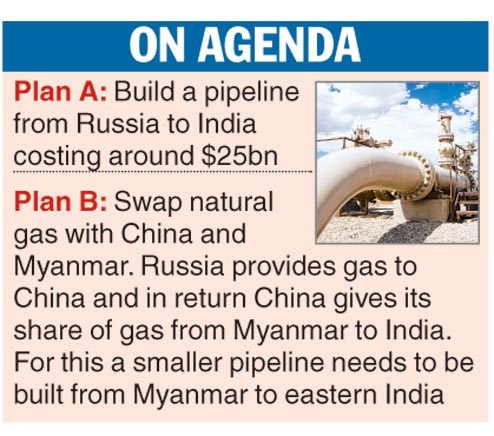Mumbai, June 19: The Tatas will produce the F-16 fighter plane in India, which is described as the world's most successful, multi-role combat fighter ever produced.
The $100-billion Tata group signed a deal with Lockheed Martin (sales of $47.2 billion in 2016) at the Paris Air Show today to make the F-16 Block 70, the newest and most advanced version of the multi-role fighter plane that is flown today by 26 countries, including Pakistan and Iraq.
The deal was struck a little over a decade after Tata group patriarch Ratan Tata flew an F-16 Fighting Falcon at the Bangalore Air Show which he had then described as an "unbelievable experience".
Monday's landmark agreement affirms the intention of the two partners to produce the F-16 Block 70 in India.
"The F-16 Block 70 is ideally suited to meet the Indian Air Force's single-engine fighter needs and this unmatched US-Indian industry partnership directly supports India's initiative to develop private aerospace and defence manufacturing capacity in India," Lockheed Matin said in a press statement.
The plan is to relocate the Forth Worth, Texas plant to win billions of dollars worth of orders from the Indian government.
But the fortunes of this venture will not be dependent on the Indian military alone. The deal will provide "India the opportunity to produce, operate and export the aircraft", the statement said.
Most countries fly the lower grade F-16s - ranging from the Block 15 to the Block 50, which Tata flew in February 2007. Many are looking to upgrade their fighters and the venture could expect brisk business.

In June last year, the Washington Post had reported that the Obama administration had permitted Lockheed Martin and Boeing to go ahead with plans to produce the F-16 Falcon and the F/A18 Super Hornet, respectively, in India. The paper had said the F-16 might be produced "exclusively" in India after relocating the entire assembly line from its Texas plant to India.
While the F-16 has been produced in other countries through joint ventures before, this is the first time that the entire assembly line would be moved abroad.
The US has been phasing out its fleet of F-16s and is moving towards a new defence programme involving the production of the F-35 combat fighter, which is also built by Lockheed Martin.
"This agreement builds on the already established joint venture between Lockheed Martin and Tata and underscores the relationship and commitment between the two companies," Tata Sons chairman N. Chandrasekaran said.
"Lockheed Martin is honoured to partner Tata Advanced Systems Limited on the F-16 programme," said Orlando Carvalho, executive vice-president of Lockheed Martin Aeronautics.
"Our partnership significantly strengthens the F-16 'Make in India' offer, creates and maintains numerous new job opportunities in India and the US, and brings the world's most combat-proven multi-role fighter aircraft to India," Carvalho added.
The F-16 went into production in January 1975. It was originally made by General Dynamics. In 1993, the Fort Worth plant was sold to Lockheed Martin.
More than 4,500 fighters have been produced and 3,200 are still operational, making it one of the most successful western military projects since World War II.
According to the Lockheed Martin website, the Block 70 software further enhances the capabilities of the plane through an advanced datalink, precision GPS navigation and Automatic Ground Collision Avoidance System.
Tata Advanced Systems Limited is a wholly owned subsidiary of Tata Sons, focused on providing integrated solutions for aerospace, defence and homeland security.
In a short span of five years, Tata Advanced Systems Limited has become a significant player in the global aerospace market, becoming the premier manufacturing partner for global original equipment manufacturers, including Boeing, Airbus Group, Sikorsky Aircraft Corporation, Lockheed Martin Aeronautics, Pilatus Aircraft, Cobham Mission Equipment, RUAG Aviation, as well as the government of India's Defence Research & Development Organisation.
Lockheed Martin-Tata F-16 partnering agreement builds on TASL's proven performance manufacturing airframe components for the C-130J airlifter and the S-92 helicopter.
The two partners took pains to quell any concerns that the Trump administration might have about the resultant loss of jobs to India.
"The F-16 production in India supports thousands of Lockheed Martin and F-16 supplier jobs in the US, creates new manufacturing jobs in India, and positions Indian industry at the centre of the most extensive fighter aircraft supply ecosystem in the world," the statement added.










